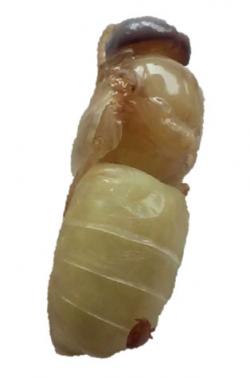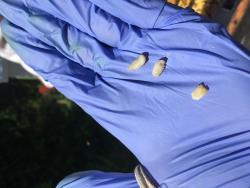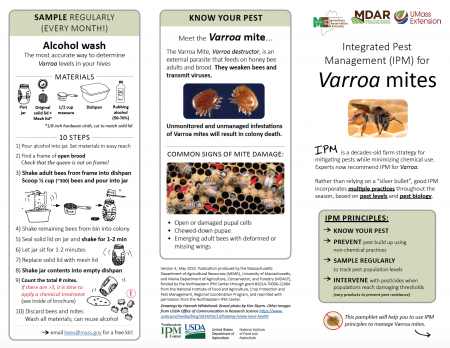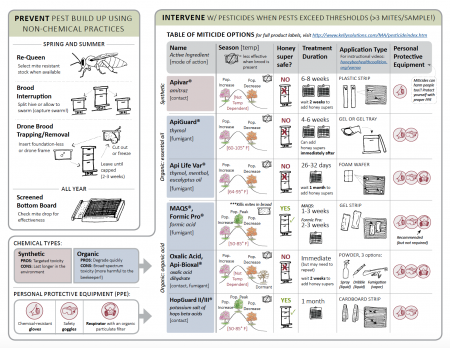Pests and Diseases
Managing pests and diseases in your hive is an important, difficult and inevitable part of being a beekeeper.
If pests and diseases are left unchecked, they can not only harm your colony, but also neighboring colonies. Be a responsible steward of your bees! The good news is that there are several excellent resources on managing pests and diseases.
Check out the new Varroa Mite IPM brochure, published by UMass Extension in collaboration with MDAR, The Maine Dept. of Agriculture, and the Northeast IPM Center!
General resources:
- For the latest science-based recommendations about pest and disease management, check out the Best Management Practices guide published by the Honey Bee Health Coalition. This is the definitive guide to hive care, written and reviewed by honey bee experts and scientists from across the country.
- Check out the Bee Informed Partnership website to explore long-term national data on hive health.
- The Massachusetts Department of Agriculture conducts FREE hive inspections. Not only will an inspection let you know if your hive is healthy, but it is a great opportunity to work bees with an expert.
- If you suspect that you have a disease in your hive, you can send a sample to the USDA Bee Lab in Maryland for testing. This is also a free resource!
 Varroa mites
Varroa mites
Even if you don't see them, your hive has Varroa mites, or will soon. It is critical that you create a Varroa management plan, and monitor for Varroa using an alcohol wash. Here are some good resources to help:
- Check out UMass Varroa resources here!
- The Dyce Bee Lab at Cornell has excellent resources on:
- Monitoring for mites using an alcohol wash
- Principles of Varroa Mite IPM
- A template for creating an IPM plan
- The Honey Bee Health Coalition has excellent resources for Varroa management, including:
- A Tools for Varroa Management guide
-
A series of videos illustrating mite treatment options
 Other Pests and Diseases
Other Pests and Diseases
- The Massachusetts Department of Agriculture Apiary Program has excellent resources about hive diseases, including:
- American Foulbrood Fact Sheet
- Diagnosis of Honey Bee Diseases
- Managing Dead-Outs
- Nosema Fact Sheet
- The University of Guelph has published several videos about diagnosing abnormal colony conditions:
- Abnormal Condition Part I (Failed Queens and Chalkbrood)
- Abnormal Condition Part II (Wax Moth, Monitoring Mites and Antibiotics)
- Abnormal Condition Part III (Laying Workers, Sacbrood)


